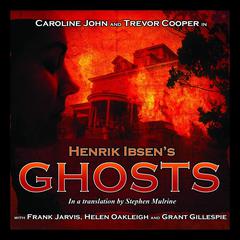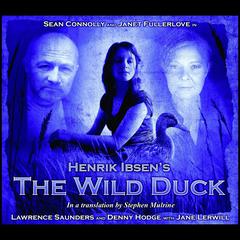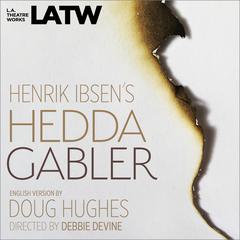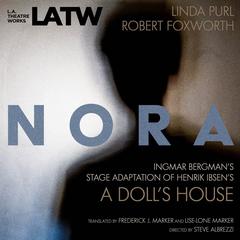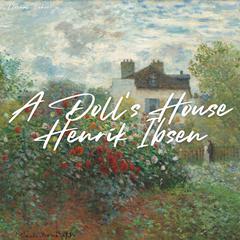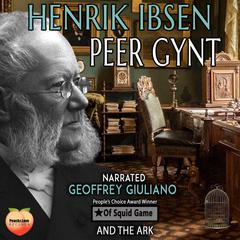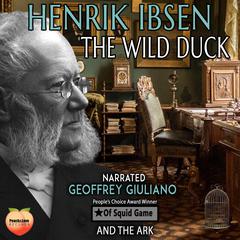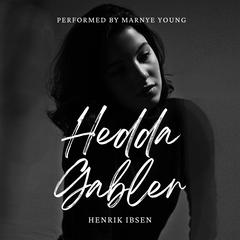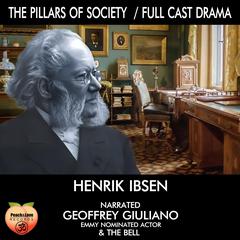 Play Audiobook Sample
Play Audiobook Sample
A Doll's House Audiobook
 Play Audiobook Sample
Play Audiobook Sample
Quick Stats About this Audiobook
Total Audiobook Chapters:
Longest Chapter Length:
Shortest Chapter Length:
Average Chapter Length:
Audiobooks by this Author:
Publisher Description
A Doll's House is a three-act play written by Norwegian playwright Henrik Ibsen. It premiered at the Royal Theatre in Copenhagen, Denmark, on 21 December 1879, having been published earlier that month. The play is set in a Norwegian town circa 1879. The play is significant for the way it deals with the fate of a married woman, who at the time in Norway lacked reasonable opportunities for self-fulfillment in a male-dominated world, despite the fact that Ibsen denied it was his intent to write a feminist play. It aroused a great sensation at the time and caused a "storm of outraged controversy" that went beyond the theatre to the world of newspapers and society. Henrik Johan Ibsen was a Norwegian playwright and theatre director. As one of the founders of modernism in theatre, Ibsen is often referred to as "the father of realism" and one of the most influential playwrights of his time. Ibsen is the most frequently performed dramatist in the world after Shakespeare, and A Doll's House was the world's most performed play in 2006. Ibsen is often ranked as one of the most distinguished playwrights in the European tradition and is widely regarded as the foremost playwright of the nineteenth century. Ibsen was nominated for the Nobel Prize in Literature in 1902, 1903, and 1904.
Download and start listening now!
"I feel that a Doll's House, even though the Ibsen said there were no feminist views, was directed and biased toward women. I feel this way because of the way that Ibsen portrays Torvald and then Nora's reaction to the way he treats her. In the end of the book, Torvald finds the letter that Krogstad put in the mailbox, and he goes off on Nora telling her how it will ruin his reputation and what not, and that she is a stupid little woman. He also repeatedly calls her his "little skylark" which is very condescending because it puts him superior to Nora."
— Aidan (4 out of 5 stars)
A Doll's House Listener Reviews
-
" I guess it isn't fair that I'm three-starring this because I find Nora and the choices she make to be so irritating - Ibsen was clearly trying to spark discussion and interpretation, and he did just that. The thing is, though, the only way this blew my mind was in rage at Nora. "
— Jil, 1/12/2014 -
" Had to read for a literature class, it was alright. "
— Amanda, 1/7/2014 -
" Read it for theatre class but have to read it over so that it can sink in. "
— Jani, 10/24/2013 -
" Hadn't read it in a long time, and decided to re-read through the Gutenberg project. I'm not quite sure why we were all forced to read it, besides being a period piece about a vapid woman who miraculously discovers herself. It's dull, unrealistic and boring, even if you place it in your head to be in the same time. But I suppose it's still better than some of the stuff they forced us to read. "
— Lynnette, 10/12/2013 -
" read this play in high school years ago and it made a huge impression on me. i forgot about it until i was going through the "books every woman should read list" - i concur that this is a book (play) every woman should read. bravo to ms. clemons my senior year hs english teacher for teaching this. "
— Corinne, 8/25/2013 -
" i think this was a very controversial play at that time because of the ideas it presents. "
— Arturo, 7/12/2013 -
" Beautiful, moving, and revolutionary. "
— Ayne, 7/6/2013 -
" One of my favorite plays. "
— Bryan, 7/2/2013 -
" It is the best play I have ever read! "
— Maii, 5/9/2013 -
" this is a realistic play written in the 1800's. this play was shocking to most of europe because it is a book based on how marrigae fails. Nora the wife seems to be a "Bimbo" but really is an intelligent woman. she does what she has to inorder to save her family and her husband. "
— Jeunesse, 11/22/2012 -
" It's been fun to read this with seniors. I've always read it with 10th graders before, and they don't have the context to understand Nora or the jokes. This time, students have just laughed as we were reading. Nice! "
— Andrea, 9/1/2012 -
" I was very suprised by how much I enjoyed this story. It really encompassed my views on what women should do if they are in an abusive relationship; stand up for themselves. I liked the amount of drama and tension throughout the story and it made me want to keep on reading. "
— Tom, 9/26/2011 -
" a masterpiece... "
— Elizabennet, 7/3/2011
About Henrik Ibsen
Henrik Ibsen (1828–1906) was a major nineteenth-century Norwegian playwright, theater director, and poet. He is often referred to as “the father of prose drama” and is one of the founders of modernism in the theater. His major works include Brand, Peer Gynt, An Enemy of the People, Emperor and Galilean, A Doll’s House, Ghosts, The Wild Duck, and The Master Builder. Several of his plays were considered scandalous to many of his era, when European theater was required to model strict mores of family life and propriety. Ibsen’s work examined the realities that lay behind many façades, revealing much that was disquieting to many contemporaries. It utilized a critical eye and free inquiry into the conditions of life and issues of morality.
About Geoffrey Giuliano
Geoffrey Giuliano is the author of over twenty internationally bestselling biographies, including the London Sunday Times bestseller Blackbird: The Life and Times of Paul McCartney and Dark Horse: The Private Life of George Harrison. In addition, he can be heard on the Westwood One Radio Network and has written and produced over sixty original spoken-word albums and video documentaries on various aspects of popular culture.






